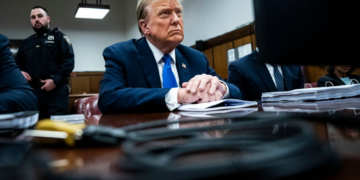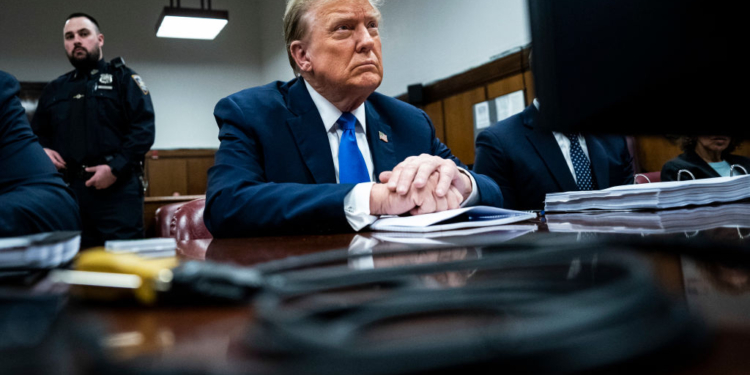Seven steps forward, one step back. Or maybe one-and-a-half.
That’s what the jury selection process has looked like so far in the criminal case against former President Donald Trump in Manhattan in which he faces 34 felony charges that he falsified business records.
The charges stem from hush money payments to pornographic actress Stormy Daniels in exchange for her silence about a brief tryst between her and the president. Trump denies both the affair and the cover-up.
Jury selection in the case was always likely to be problematic, and that’s in fact how it’s working out.
After seating seven jurors this week, Judge Juan Merchan was forced to excuse one of them after she expressed doubt about her ability to be impartial, CBS News reported.
“Aspects of my identity have already been out there in public,” the juror told the court Thursday morning. “Yesterday alone, I had friends and family push things to me.”
“I don’t think at this point that I can be fair and unbiased,” she added.
Merchan “immediately” blamed the media for its reporting on the jury selection process, the outlet reported, and ordered no further reporting on the physical appearance of members of the jury pool.
He further ordered that information about the companies where jurors work be redacted from court records released to the public to make individual jurors more difficult to identify.
As if losing one juror weren’t enough, a second came under scrutiny after prosecutors said that someone of the same name had been arrested in connection with “corruption investigation” dating back to the 90s.
The juror in question was not present in the courtroom when prosecutors raised those questions, and it wasn’t yet known whether the juror was the same individual or whether the juror would be excused if he or she was the same person.
Regardless, the effort by the court to impanel 12 jurors and six alternates took a step back from the rapid success it appeared to be enjoying Wednesday.
The court started Tuesday with a pool of 96 potential jurors, about half of whom were dismissed quickly after stating that they didn’t believe they could judge the case impartially.
The length of the case, which is expected to last “up to two months,” according to CBS, created scheduling issues for other potential jurors, whom Merchan dismissed.
A second group of 96 potential jurors was scheduled to be questioned beginning Thursday.
Despite publicly protesting the case against him, Trump has been “largely quiet and reserved” in court, the outlet reported, “even appearing to nod off from time to time.”
USA Today reported last week that Trump, 77, faced a maximum of 20 years in prison if convicted on all counts in the case, but suggested that the court could delay imposing any sentence until after his second term in the White House, should he win in November.
This article appeared originally on The Western Journal.


























 Continue with Google
Continue with Google